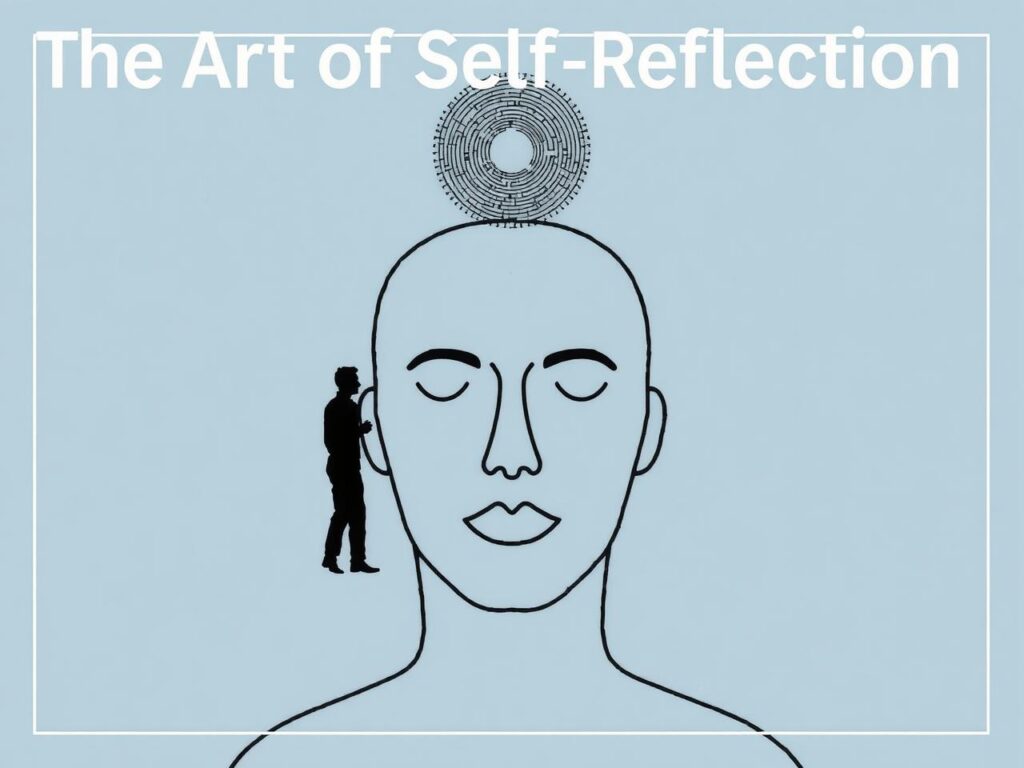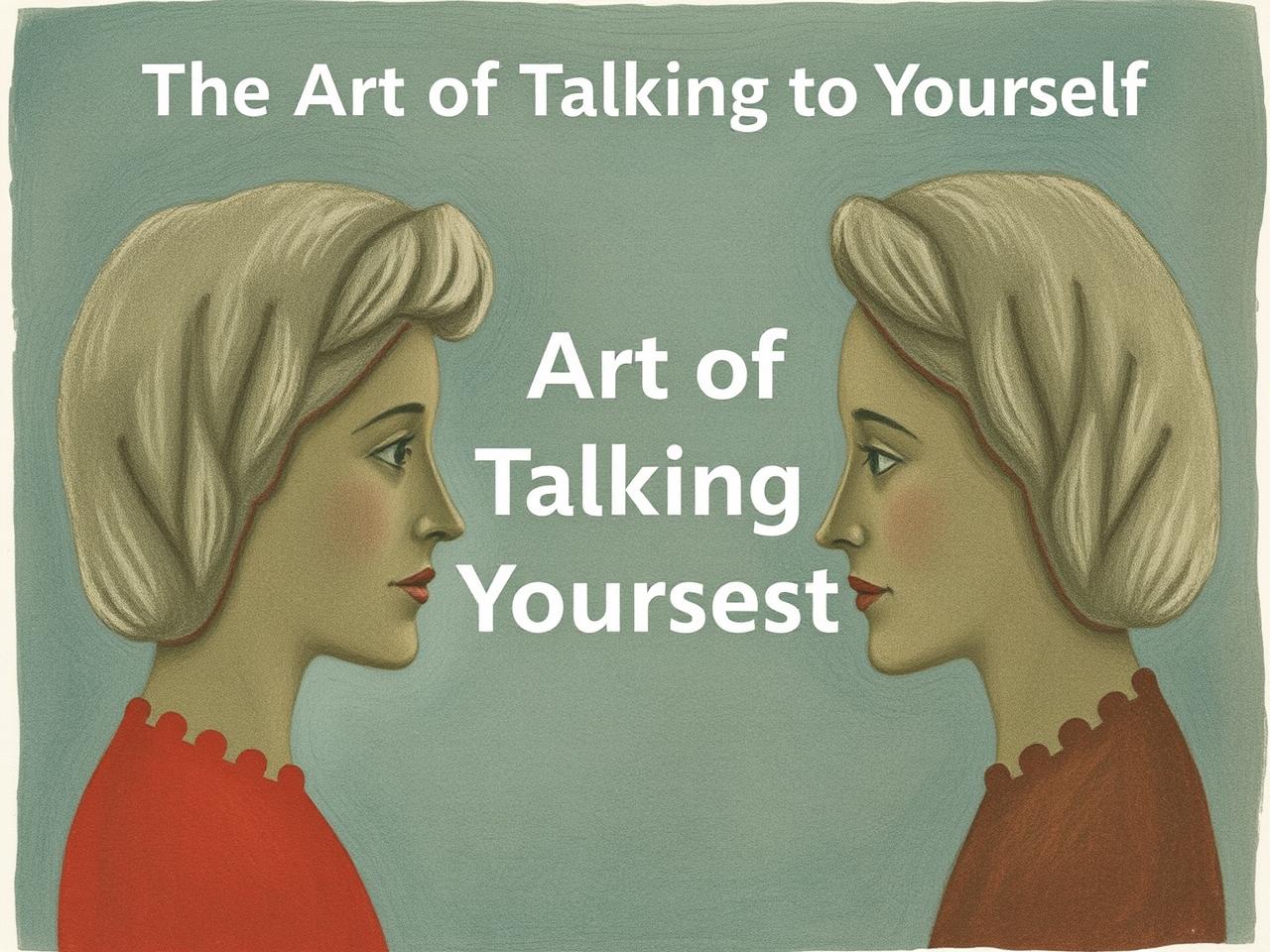The Art of Talking to Yourself: Expert-Level Conversations with Your Inner Genius
Developing one’s innate potential involves recognizing and nurturing individual strengths and abilities. This process requires fostering a constructive internal dialogue that promotes personal growth and innovation. Mindfulness and self-awareness practices can be effective tools in this endeavor.
By maintaining present-moment awareness and observing one’s thoughts and emotions, individuals can identify cognitive patterns and work towards cultivating a more positive and productive mental landscape. Creating a supportive environment is another crucial aspect of developing a constructive internal dialogue. This can be achieved by seeking out mentors, peers, and colleagues who provide inspiration and encouragement.
Engaging in discussions with like-minded individuals who share similar values and objectives can offer fresh perspectives and insights, contributing to a more positive internal narrative. Furthermore, exposure to personal development resources such as books, podcasts, and workshops can introduce new concepts and thought processes, thereby enhancing one’s internal dialogue and promoting personal growth.
Key Takeaways
- Embrace your inner genius by cultivating a productive inner dialogue
- Harness the power of positive self-talk to achieve success
- Overcome negative self-talk by silencing your inner critic with your inner genius
- Spark innovative ideas and solutions by tapping into your inner genius
- Use your inner genius to gain insight, perspective, and navigate life’s challenges
- Have fun and be playful by embracing your quirkiness with your inner genius
The Power of Positive Self-Talk: Harnessing Your Inner Genius for Success
The Power of Affirmations
Affirmations are positive statements that you repeat to yourself regularly to reinforce a positive belief or mindset. For example, if you’re working on a challenging project, you might repeat affirmations such as “I am capable and resourceful” or “I have the skills and knowledge to succeed” to boost your confidence and motivation.
Reframing Negative Thoughts
Another way to harness the power of positive self-talk is by reframing negative thoughts into positive ones. When you catch yourself thinking negatively, try to reframe those thoughts into more positive and empowering ones. For example, if you catch yourself thinking “I can’t do this,” try reframing it into “I can figure this out with some effort and determination.”
Training Your Mind for Success
By consciously choosing to reframe negative thoughts into positive ones, you can train your mind to default to a more positive inner dialogue, which can ultimately lead to greater success and fulfillment.
Silencing the Inner Critic: Overcoming Negative Self-Talk with Your Inner Genius

The inner critic is that voice inside your head that constantly criticizes and undermines your abilities. Overcoming negative self-talk and silencing the inner critic is essential for cultivating a productive inner dialogue. One way to silence the inner critic is by practicing self-compassion.
Instead of beating yourself up for mistakes or shortcomings, try treating yourself with the same kindness and understanding that you would offer to a friend. By practicing self-compassion, you can start to quiet the inner critic and replace negative self-talk with more supportive and nurturing thoughts. Another way to overcome negative self-talk is by challenging your inner critic’s assumptions.
When you catch yourself engaging in negative self-talk, take a moment to question the validity of those thoughts. Ask yourself if there’s evidence to support those negative beliefs or if they’re simply based on fear or insecurity. By challenging the assumptions of your inner critic, you can start to weaken its hold on your inner dialogue and create space for more positive and empowering thoughts to emerge.
Getting Creative: Using Your Inner Genius to Spark Innovative Ideas and Solutions
Your inner genius is a wellspring of creativity and innovation waiting to be tapped into. By harnessing your inner genius, you can spark innovative ideas and solutions that can propel you forward in both your personal and professional life. One way to get creative using your inner genius is by engaging in activities that inspire and stimulate your mind.
This could be anything from taking a walk in nature, listening to music, or practicing meditation. By engaging in activities that bring you joy and relaxation, you can create the mental space needed for creative ideas to emerge. Another way to spark innovative ideas using your inner genius is by embracing curiosity and open-mindedness.
By approaching challenges with a curious and open mind, you can uncover new perspectives and insights that can lead to innovative solutions. This might involve asking questions, seeking out diverse viewpoints, or experimenting with new approaches. By embracing curiosity and open-mindedness, you can tap into your inner genius and unleash your creative potential.
Finding Clarity: Using Your Inner Genius to Navigate Life’s Challenges
Life is full of challenges and uncertainties, but by using your inner genius, you can find clarity and navigate through even the most difficult times. One way to use your inner genius to find clarity is by practicing mindfulness. By being present in the moment and observing your thoughts and emotions without judgment, you can gain clarity on what truly matters to you and what steps you need to take to overcome challenges.
Another way to use your inner genius to find clarity is by tapping into your intuition. Your intuition is a powerful tool that can guide you towards the right decisions and actions. By quieting the noise of external influences and tuning into your inner wisdom, you can gain clarity on the best path forward in any situation.
The Art of Self-Reflection: Using Your Inner Genius to Gain Insight and Perspective

Self-reflection is an essential practice for using your inner genius to gain insight and perspective. By taking the time to reflect on your experiences, thoughts, and emotions, you can gain valuable insights that can help you grow and evolve. One way to practice self-reflection is by journaling.
By writing down your thoughts and feelings regularly, you can gain clarity on what’s truly important to you and identify patterns in your thinking that may be holding you back. Another way to use self-reflection to gain insight and perspective is by seeking feedback from others. By asking for feedback from friends, colleagues, or mentors, you can gain valuable insights into how others perceive you and your actions.
This feedback can help you gain perspective on areas for growth and improvement, as well as reinforce the positive aspects of your personality and abilities.
Embracing Your Quirkiness: How to Have Fun and Be Playful with Your Inner Genius
Embracing your quirkiness is about celebrating your unique traits and embracing the things that make you different from others. By doing so, you can have fun and be playful with your inner genius. One way to embrace your quirkiness is by exploring your passions and hobbies without fear of judgment.
Whether it’s collecting vintage records, practicing circus arts, or learning a new language, allowing yourself the freedom to pursue what brings you joy can help you tap into your inner genius in a playful and lighthearted way. Another way to have fun and be playful with your inner genius is by surrounding yourself with people who appreciate and celebrate your quirks. By building a supportive network of friends and colleagues who embrace diversity and individuality, you can feel more comfortable expressing yourself authentically and tapping into your unique talents and abilities without fear of judgment or criticism.
In conclusion, embracing your inner genius is about cultivating a productive inner dialogue, harnessing the power of positive self-talk, silencing the inner critic, getting creative, finding clarity, practicing self-reflection, and embracing your quirkiness. By doing so, you can tap into your unique abilities and talents, spark innovative ideas, navigate life’s challenges with clarity, gain insight and perspective, and have fun in a playful way that celebrates your individuality. Your inner genius is a powerful force waiting to be unleashed – all it takes is a little intentionality and self-awareness to let it shine.
FAQs
What is the art of talking to yourself?
The art of talking to yourself involves engaging in a constructive and meaningful inner dialogue with oneself. It is a practice that can help individuals gain clarity, insight, and guidance from their inner wisdom.
What are expert-level conversations with your inner genius?
Expert-level conversations with your inner genius refer to the ability to engage in deep, insightful, and transformative dialogues with one’s inner wisdom. This involves tapping into one’s intuition, creativity, and higher intelligence to gain valuable insights and solutions to personal and professional challenges.
How can talking to yourself benefit you?
Talking to yourself can benefit you in various ways, including gaining clarity on your thoughts and emotions, problem-solving, decision-making, self-reflection, and personal growth. It can also help in reducing stress, boosting self-confidence, and enhancing overall well-being.
What are some techniques for having expert-level conversations with your inner genius?
Some techniques for having expert-level conversations with your inner genius include mindfulness practices, journaling, meditation, visualization, and creative expression. These techniques can help individuals quiet their minds, access their intuition, and tap into their inner wisdom.
Is talking to yourself a sign of mental illness?
No, talking to yourself is not necessarily a sign of mental illness. In fact, it is a common practice that many people engage in to process their thoughts, make decisions, and express their emotions. However, if talking to yourself becomes disruptive or uncontrollable, it may be a symptom of an underlying mental health issue and should be addressed with professional help.








GIPHY App Key not set. Please check settings